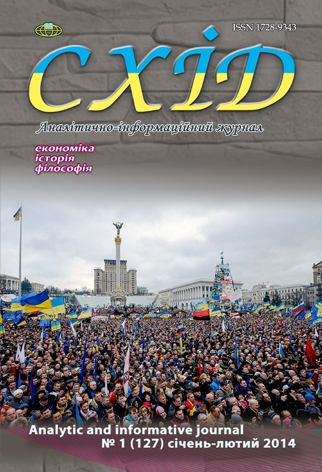Project-based budgeting in shipbuilding enterprise
DOI:
https://doi.org/10.21847/1728-9343.2014.1(127).23101Keywords:
budgeting, principles of budgeting, types of budgets, project-based managementAbstract
In today's market conditions the activity of shipbuilding process is held with special aspects of project management, which have direct dependence on realization project's of build and repair ships. The project approach of the management on the grounds of project-oriented budgeting is significantly different from the functional-oriented approach of the management and process of budgeting on others organizations. In connection with this the project-oriented budgeting approach should include mentioned above special aspects which are described below:
Firstly, the projects being inherently "unique" characterized by a fairly high degree of uncertainty in the assessment of its budget.
Secondly, the distribution of costs including time interval and depend on the schedule of works.
Thirdly, projects to the extent of its implementation may be affected.
Fourthly, start and finish the project does not always coincide with the beginning and end of the financial year.
Fifthly, necessary to take into the account the high uncertainty receive cash flows from the project activity shipyards.
Processes of building a system of project-oriented management on the grounds of budgeting must include the specific budgeting principles and main types of budgets.
In this article were considered basic principles of budgeting process and developed main types of budgets in shipbuilding enterprise. The types of budgets and principles of the budgeting, which are fully described in this article, defined the conceptual foundations of the laws of budgeting for shipbuilding industry, providing feasibility analysis and control budgets in shipbuilding enterprise.
Downloads
References
Касаткина Н. В. Бюджетирование на судостроительном предприятии как фактор повышения его конкурентоспособности / Н. В. Касаткина, А. Н. Шамрай [Електронний ресурс]. - Режим доступу : http://archive.nbuv.gov.ua/portal/natural/Vonmu/2010_31/files/3116.pdf.
Чернова Л. С. Ефективні моделі бюджетування проектно-керованих наукомістких підприємств / Л. С. Чернова [Електронний ресурс]. - Режим доступу : http://archive.nbuv.gov.ua/portal/natural/urss/2010_3/37-41.pdf.
Козлов А. С. Внедрение бюджетирования со сдвигом окна для проектной деятельности в организациях с годовым циклом финансового планирования / А. С. Козлов, О. А. Ерак // Международный бухгалтерский учет. - 2011. - № 34 (184). - С. 16-24.
Антикова І. В. Управління інноваційними проектами проектно-орієнтованих наукомістких підприємств / І. В. Антикова // Інновації в суднобудуванні та океанотехніці : матеріали міжнародної науково-технічної конференції. - Миколаїв : НУК, 2012. - С. 570-572.
REFERENCES
Kasatkina N. V., Shamray A. N. (2010), Budgeting in shipbuilding enterprise as factor to improve its competitiveness, available at: http://archive.nbuv.gov.ua/portal/natural/Vonmu/2010_31/files/3116.pdf (rus).
Chernova L. S. (2010), Effective models of budgeting in project management of knowledge-intensive enterprises, available at: http://archive.nbuv.gov.ua/portal/natural/urss/2010_3/37-41.pdf (ukr).
Kozlov A. S., Yerak O. A. (2011), Implementation budgeting by shift window for project activities in organizations with year financial planning process, Mezhdunarodnyy bukhgalterskiy uchet [International accounting], № 34(184), pp. 16-24 (rus).
Antykova I. V. (2012), Management innovation projects in project management of knowledge-intensive enterprises, Innovations in shipbuilding and ocean engineering, material of International scientific and technical conference, Mykolaiv, pp. 570-572 (ukr).
Downloads
Published
How to Cite
Issue
Section
License
Copyright (c) 2014 Artem Pichka

This work is licensed under a Creative Commons Attribution-NonCommercial-NoDerivatives 4.0 International License.
1. Authors bear responsibility for the accuracy of facts, quotations, numbers and names used.
2. Manuscripts are not sent back.
3. The publisher does not always agree with the authors' opinion.
4. The authors reserve the right to authorship of the work and pass the first publication right of this work to the journal under the terms of a Creative Commons Attribution-NonCommercial-NoDerivatives 4.0 International License. This license allows others to distribute (copy) the published work for non-commercial purposes, provided there is mandatory attribution to its authors and a link to the first publication in our journal.
5. The authors have the right to conclude separate supplement agreements that relate to non-exclusive work distribution in the form in which it has been published by the journal (for example, to upload the work to the online storage of the journal or publish it as part of a monograph), provided that the reference to the first publication of the work in this journal is included.

